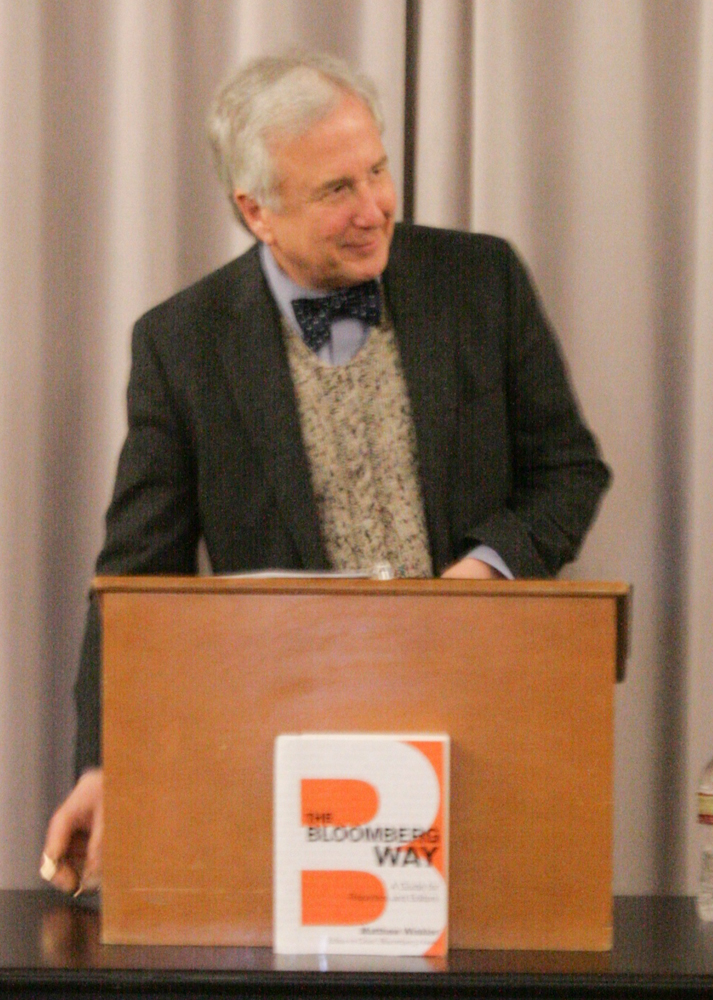
In a presentation on Wednesday afternoon, Bloomberg News co-founder and editor-in-chief Matthew Winkler repeatedly emphasized the foundation of the financial news giant’s success: data. The hour-long talk, part of a weekly speaker series for Communications graduate students, was also live-streamed on the class’s website.
Before “data-driven” anything was a ubiquitous buzzphrase–all the way back in 1990, according to Winkler–Bloomberg came to use data in what were then groundbreaking ways. At that time, bankers who wanted to compare the relative worth of securities had to sift through stacks of newspapers or call a personal source. An early version of Bloomberg simply collected a database of securities over time and packaged it neatly for bankers.
Winkler, who was then a reporter for the Wall Street Journal, immediately saw value in the product.
“Even though Bloomberg was just data points, it was at least three or four weeks ahead of my columns,” he said.
Earlier forms of Bloomberg bridged a number of practices, according to Winkler, including operating as a software company, a hardware company, a utility and a content company all at the same time.
“Eight years after it was born, we decided it would become a news company,” he continued, referencing his collaboration with Michael Bloomberg on the creation of Bloomberg News.
In a brief question and answer period, Winkler touched briefly on some of the pressing issues facing business journalism and the industry as a whole. Asked about the way Western media should respond to the expulsion of journalists from China, including those from Bloomberg, Winkler demurred from answering directly but acknowledged that media organizations sometimes have to work in inhospitable political circumstances.
“We’re not, in any location, going in with the sole purpose of challenging the government or authority,” he said. “We’re not going to be the ones to change the world that way. We’re going to change the world by illuminating events and reporting on issues.”
That style of journalism paid dividends for Bloomberg News just this past week, with old-school journalism leading to the firm breaking and then leading coverage of Satya Nadella’s rise to Microsoft CEO.
Winkler noted, however, that there is more to Bloomberg journalism than diligence and accuracy.
“[It] comes back to someone who is very familiar, very prepared, used to using data,” he said.
Contact Edward Ngai at edngai ‘at’ stanford ‘dot’ edu.
